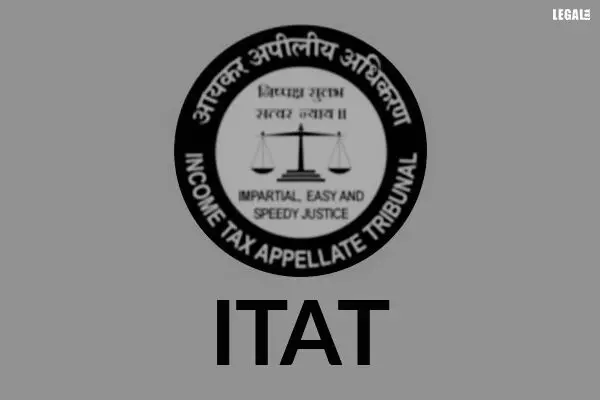- Home
- News
- Articles+
- Aerospace
- AI
- Agriculture
- Alternate Dispute Resolution
- Arbitration & Mediation
- Banking and Finance
- Bankruptcy
- Book Review
- Bribery & Corruption
- Commercial Litigation
- Competition Law
- Conference Reports
- Consumer Products
- Contract
- Corporate Governance
- Corporate Law
- Covid-19
- Cryptocurrency
- Cybersecurity
- Data Protection
- Defence
- Digital Economy
- E-commerce
- Employment Law
- Energy and Natural Resources
- Entertainment and Sports Law
- Environmental Law
- ESG
- FDI
- Food and Beverage
- Gaming
- Health Care
- IBC Diaries
- In Focus
- Inclusion & Diversity
- Insurance Law
- Intellectual Property
- International Law
- IP & Tech Era
- Know the Law
- Labour Laws
- Law & Policy and Regulation
- Litigation
- Litigation Funding
- Manufacturing
- Mergers & Acquisitions
- NFTs
- Privacy
- Private Equity
- Project Finance
- Real Estate
- Risk and Compliance
- Student Corner
- Take On Board
- Tax
- Technology Media and Telecom
- Tributes
- Viewpoint
- Zoom In
- Law Firms
- In-House
- Rankings
- E-Magazine
- Legal Era TV
- Events
- News
- Articles
- Aerospace
- AI
- Agriculture
- Alternate Dispute Resolution
- Arbitration & Mediation
- Banking and Finance
- Bankruptcy
- Book Review
- Bribery & Corruption
- Commercial Litigation
- Competition Law
- Conference Reports
- Consumer Products
- Contract
- Corporate Governance
- Corporate Law
- Covid-19
- Cryptocurrency
- Cybersecurity
- Data Protection
- Defence
- Digital Economy
- E-commerce
- Employment Law
- Energy and Natural Resources
- Entertainment and Sports Law
- Environmental Law
- ESG
- FDI
- Food and Beverage
- Gaming
- Health Care
- IBC Diaries
- In Focus
- Inclusion & Diversity
- Insurance Law
- Intellectual Property
- International Law
- IP & Tech Era
- Know the Law
- Labour Laws
- Law & Policy and Regulation
- Litigation
- Litigation Funding
- Manufacturing
- Mergers & Acquisitions
- NFTs
- Privacy
- Private Equity
- Project Finance
- Real Estate
- Risk and Compliance
- Student Corner
- Take On Board
- Tax
- Technology Media and Telecom
- Tributes
- Viewpoint
- Zoom In
- Law Firms
- In-House
- Rankings
- E-Magazine
- Legal Era TV
- Events
ITAT: funds from commercial property used for charitable purposes exempt from tax

ITAT : funds from commercial property used for charitable purposes exempt from tax
The bench cited the decision of the Kerala High Court in a similar case
The Pune bench of the Income Tax Appellate Tribunal (ITAT) has held that the application of income from surplus funds on additions to a building for a charitable purpose, is liable to an exemption under the Income Tax Act, 1961.
The assessee is a public charitable trust registered under the IT Act. It derives income from bank deposits and rentals. The assessee filed an Income Tax Return (ITR) for the Assessment Year 2011-2012, declaring 'Nil' income.
The return came up for scrutiny and the assessing officer (AO) issued notices under Section 143(2) and 142(1) of the IT Act.
In response, the assessee furnished documents providing details of income. But the AO denied the exemption and determined the total income of the assessee at Rs.13,57,70,750. He recorded the reasons under Section 143(3) of the IT Act.
However, the Commissioner of Income Tax (Appeals) in his order, allowed the exemption.
Aggrieved by it, the revenue department appealed before ITAT. It challenged the action of CIT(A) in allowing exemption without appreciating the expenditure on the objects of the trust. It maintained this was negligible compared to the expenditure incurred on the maintenance of the commercial property.
The Coram of SS Viswanethra Ravi (judicial member) and Rama Rao (accountant member) cited the decision of the Kerala High Court in the St. George Forana Church. The court held that if surplus funds were utilized for addition to a building, which was let out, and the income thereof applied for a charitable or religious purpose, it meant the application of income was for a charitable purpose.
Thus, the tribunal held, "The CIT(A) examined the issue in detail and the assessee is entitled to claim an exemption under the IT Act. We agree with the reasons and rule that it is justified."


